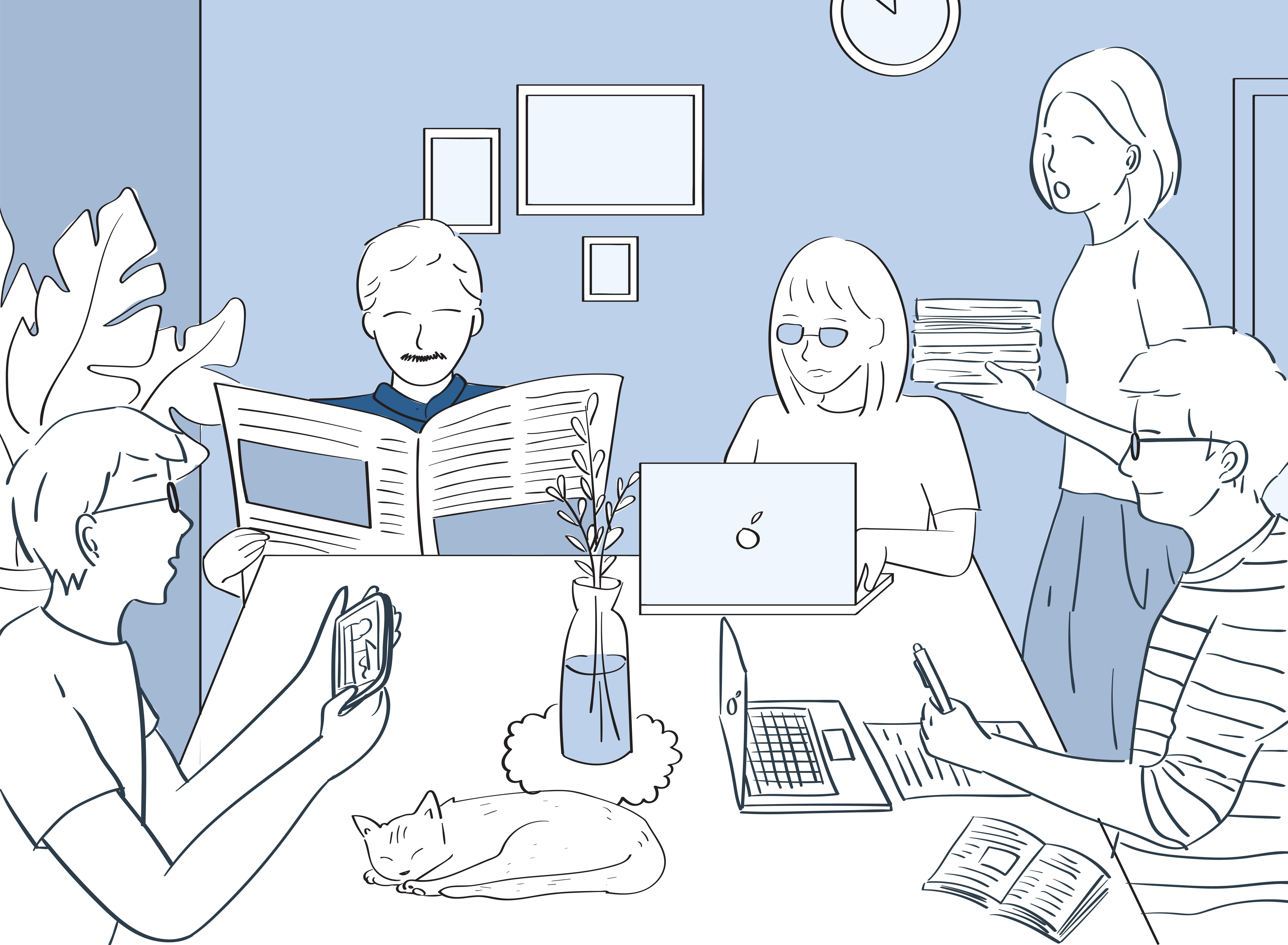The entire world is grappling with the agony of lockdown and isolation that governments everywhere have imposed due to coronavirus. For Muslims, the situation is even more anguishing because the holy month of Ramadan is nearing in the count of days. With the pandemic, this means upending all traditions of togetherness that the holiday is supposed to celebrate. You read news of folks heartbroken over cancelled trips home (mudik) and restrictions on mass taraweeh and large group gatherings.
But my worries lie not in the limitations of being together. In fact, the opposite. For six weeks ongoing, Jakartans have been staying at home to minimise the contagion of COVID-19. Ever since the presidential announcement, more and more local governments have imposed the regulations that officially came to be PSBB (Large-Scale Social Restrictions), with no end date in sight. In other words, families are as together as they can get.
For a while now, campaigns that promote staying apart to keep our unity strong in the face of the pandemic have been all the rage. But perhaps this sort of motivational, or inspirational slogan omits the cultural context of our society: unlike in Western culture where adult children have been free to leave their childhood homes, Asian parents are terrified of empty nests, whereby Indonesian parents tend to be especially canny at finding every reason to keep their children at home, adult or not, until further notice.
As a consequence, this period has arguably revealed more of our personalities and individualism to our families since many have been conducting their professional and social lives at home. For one, I don’t need to remember hard for the last time my father peeked over my shoulder to observe me working, or blatantly asked that I halt my conference call to do the dishes.
Simply put, putting together grown adults with their own habits and little own personal ways of functioning is a recipe for unnecessary nit-picking and banters at home. And while it seemed fine before, the problems are certainly arising after six continuous weeks of isolation with the family you love but can’t help resent for their overbearing tendencies. Without the distinction of work life or family life at home, boundaries now seem as fragile as our psyche during these times.
In addition, the month-long fasting means one less preoccupation—food and cooking—to keep our mind somewhat engaged. As if people didn’t have so little to be busy with during isolation, I fear that fasting could result in hungry, bored and even groggier individuals unconsciously about to snap and test all sorts of patience.
Alas, this year’s Ramadan will be an even bigger challenge to society: the patience to endure fasting and an even greater will to withstand the consequences of isolation intrinsically and outwardly with our relationships with one another. While the agony during this Ramadan is the lost opportunity to celebrate togetherness at large, deeper ones are engulfing, at least to me.
Like in any religion, the grace of Ramadan comes from the sacrifices we make. If not so, why bother fasting at all if not for the divine promise of goodness that shall abound from it. For the first time in the modern age, Muslims are to fast with the social effects of a life-sucking virus at their sides; as if hunger, thirst, and in our case, the tropical heat wasn’t enough to bear already. In hindsight, coronavirus could be giving us the perfect opportunity to truly work on our patience and tame our angst for the betterment of ourselves. And with the whole world undergoing the same pandemic, Muslims aren’t so alone in this trial. We are figuratively, literally and weirdly together.







